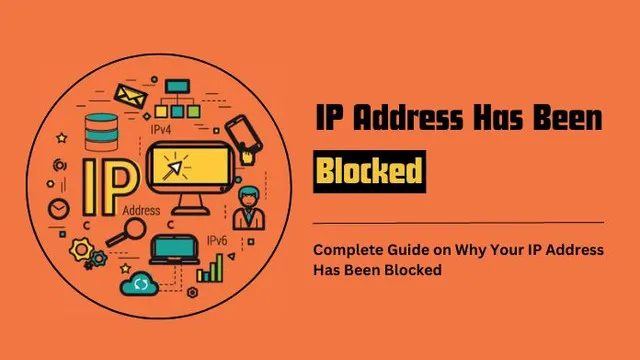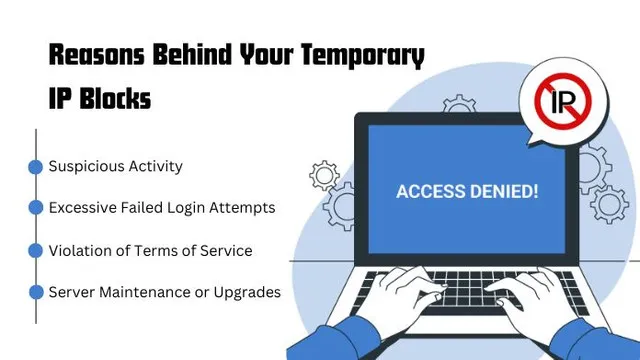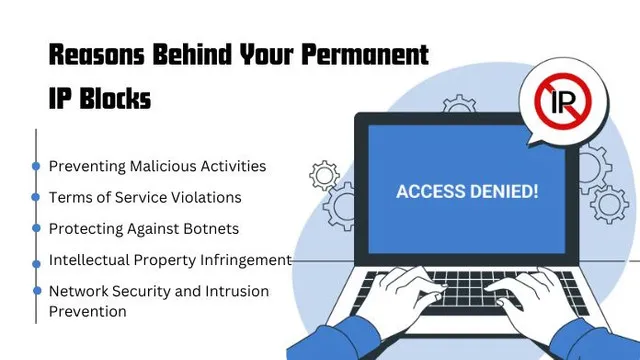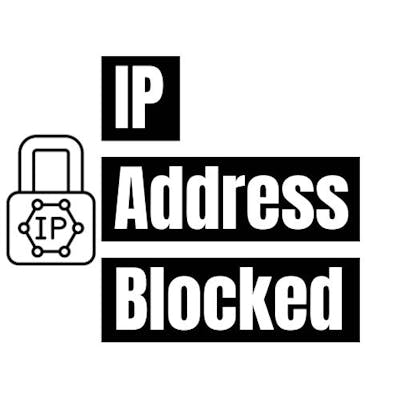Why Your IP Address Has Been Blocked (Complete Guide)
The internet is a fundamental part of our daily life in the digital age. For communication, research, entertainment, and many more purposes, we depend on it. However, you can come into a circumstance where your IP address blocked.

This might be frustrating and confusing, particularly if you don't know why it took place. However, this may now be resolved in a few simple steps. In this introduction, I've described a blog that I've read.
This will assist you in resolving the banned IP address issue. We will examine the numerous causes of IP blocks and give you a complete understanding of this problem in this comprehensive guide.
What is an IP Address?
Understanding an IP address is crucial before delving into the causes of IP blocking.
A device linked to a computer network is given a unique numerical label called an IP address, which stands for Internet Protocol.
It acts as a method of identification and makes it possible for devices to communicate with one another online.
Types of IP Address Blocks
Different IP restrictions may take place depending on the situation. Permanent blocks and temporary blocks are the two main categories of IP blocks.
Temporary Blocks
Temporary blocks are normally set up for a set amount of time, mainly to stop shady or harmful activity.
They are meant to be a brief inconvenience and are removed when the problem is fixed or the blocking period is over.
Permanent Blocks
As the name implies, permanent blocks are more severe and long-lasting. When conditions are violated severely or repeatedly, they are imposed.
The appropriate authorities may need to take major action or intervene for the block to be lifted.
Reasons Behind Your Temporary IP Blocks
Your IP address might be temporarily restricted for several reasons. Let's look at a few of the most typical causes.

Suspicious activity
Your IP address may be automatically blocked if it is involved in questionable or harmful activity, such as hacking attempts, the distribution of malware, or participation in a botnet.
Websites and online services use this security technique to safeguard themselves and their users from danger.
Excessive Failed Login Attempts
Temporary IP bans may result from repeatedly failing to connect to an account, such as an email service or an online banking platform.
This method is in place to stop brute-force assaults, in which attackers attempt many username and password combinations to gain access.
Violation of Terms of Service
It's important to abide by their terms of service when using online platforms or services.
Your IP address can be temporarily restricted if you engage in actions prohibited by these rules, such as spamming, harassing behavior, or sharing unlawful material.
Unusual Traffic Patterns
Temporary bans may be triggered by unusually high or irregular traffic patterns from a particular IP address.
Your IP address can be identified as suspicious if, for instance, it generates a lot of requests or downloads a lot of data quickly.
Server Maintenance or Upgrades
Temporary IP restrictions may occasionally be implemented during server maintenance or upgrades.
Usually, this is done to make sure that the systems under development are secure and stable. When the maintenance is finished, the block is raised.
Reasons Behind Your Permanent IP Blocks

Preventing Malicious Activities
To discourage and stop unwanted behaviors like hacking, DDoS attacks, phishing, and malware distribution, permanent IP restrictions are implemented.
By blocking the related IP addresses, access to networks is denied, and further damage is avoided.
Terms of Service Violations
Permanent IP blocks may be imposed for persistent violations of the policies of an online site, such as spamming or harassment.
The offender's ability to open new accounts or engage in disruptive behavior is ensured by blocking the IP address.
Protecting Against Botnets
IP blocks are utilized to reduce the hazards posed by botnets and networks of infected computers.
Botnets' reach and efficacy are significantly constrained by restricting the IP addresses used to manage them, protecting the online community.
Intellectual Property Infringement
Websites engaged in illegally selling counterfeit goods or sharing copyrighted content may be subject to IP blocks.
By restricting access to related IP addresses, you may prevent businesses and content providers from having their rights violated.
Network Security and Intrusion Prevention
To maintain network security, firewalls, and intrusion prevention systems use IP blocks.
They aid in stopping established attack patterns and unauthorized access attempts, safeguarding sensitive data, and discouraging potential attackers.
Conclusion
For internet security and accessibility, it's essential to understand why your IP address has been restricted. The reason for IP address blocking is discussed in this tutorial, along with security precautions, content limitations, and legal compliance. You can reduce the chance of getting blocked and enjoy a seamless browsing experience by being aware of the typical causes and implementing preventive actions, including good online hygiene, secure networks, and adhering to website policies. To ensure your online presence is uninterrupted, be aware, active, and careful with your IP address.
